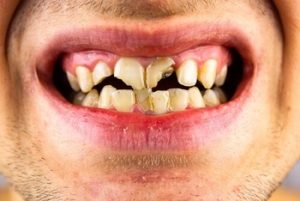A chipped or broken tooth can be both uncomfortable and inconvenient, sometimes causing pain and sensitivity. Whether it’s a slightly chipped tooth from biting down on hard foods or a severe chip due to a contact sports injury, knowing how to handle it properly is crucial. Many wonder: can you file a chipped tooth yourself? While it might seem like an easy temporary solution, attempting to smooth a sharp tooth at home may cause additional damage and lead to unexpected complications.
In this article, we’ll explore whether you should attempt to file a chipped tooth, what professional treatment options exist, and why seeing a dentist is often the best course of action.
What Happens When You Chip a Tooth?
Your natural tooth is protected by tooth enamel, the hardest substance in the human body. However, tooth enamel isn’t indestructible. Biting into hard candy, grinding your teeth, or suffering trauma from a fall can cause a broken or chipped tooth.
The extent of a chipped tooth can vary from minor chips, where a small piece of tooth enamel is lost, to severe damage, where a significant portion of the tooth is missing, potentially exposing the inner layers.
Common Causes of a Chipped Tooth
A chipped tooth can happen suddenly, often when you least expect it. While tooth enamel is strong, it’s not indestructible. Here are the most common causes of a broken or chipped tooth:
- Biting on Hard Foods:
- Hard candy, ice, nuts, and popcorn kernels can crack or chip teeth.
- Using excessive force when chewing can cause a broken or chipped tooth.
- Accidents and Contact Sports
- Falls, car accidents, or sports injuries can lead to a chipped or broken tooth. The risk is even higher when engaging in contact sports without a mouth guard for protection.
- Using Teeth as Tools
- Tearing open packaging or biting nails puts too much pressure on tooth enamel, leading to minor chips or even severe chips.
- Weakened Tooth Enamel
- Tooth decay weakens the natural tooth, making it more prone to chipping.
Acid reflux and frequent consumption of acidic foods erode enamel, increasing vulnerability.
- Grinding or Clenching Teeth
- Nighttime teeth grinding (bruxism) wears down permanent teeth, increasing the likelihood of a cracked tooth.
- A mouthguard can help protect against further damage.
- Large Fillings or Previous Dental Work
- Older dental fillings or bonding material can weaken a tooth’s structure, making it easier to break.
Can You File a Chipped Tooth at Home? Here’s Why It’s a Risky Move
Smoothing a chipped tooth at home might appear to be a simple solution, but it poses significant risks, including further damage, pain, and potential long-term dental issues. While a minor chip might not seem serious, attempting to smooth a sharp tooth with a nail file or emery board can compromise your natural tooth structure and cause more harm than good. Here’s why you should see a dentist instead of trying to fix a broken or chipped tooth on your own.
1. You Could Damage Your Tooth Enamel
Your tooth enamel is the hardest substance in your body, but once it’s worn down, it does not grow back. Using an emery board, nail file, or other abrasive tools to smooth a chipped tooth can remove too much enamel, weakening your tooth and increasing its vulnerability to tooth decay and further injury.
2. Increased Sensitivity and Pain
Filing too much can expose the sensitive inner layers of your natural tooth, leading to pain and discomfort, especially when consuming hot, cold, or acidic foods. If the broken tooth reaches the dentin or pulp, it can cause exposed nerves, which may need root canal therapy to prevent infection and severe sensitivity.
3. Risk of Infection
Using non-sterile tools from a local drug store or household items like an emery board can introduce bacteria to the damaged tooth, raising the risk of infection and tooth decay. A minor chipped tooth could turn into a serious problem, requiring root canal therapy or even tooth extraction.
4. Uneven Wear and Misalignment
If you file a chipped tooth unevenly, it can alter the shape of your original tooth, affecting your bite and causing misalignment. Over time, this can cause jaw pain, uneven pressure on other teeth, and the need for more extensive tooth repair.
5. Temporary Solution, Long-Term Consequences
Filing a broken or chipped tooth at home may provide a temporary solution, but it doesn’t address the underlying problem. If the chipped or broken area is unstable, the damage will likely worsen over time, leading to larger chips, cracks, or even a tooth missing.
6. More Expensive Repairs Later
A minor chip can rapidly worsen into a severe chip if not managed properly. Rather than a simple dental filling, you might end up needing dental crowns, dental veneers, or even dental implants if the tooth becomes too damaged to save.
7. It’s Not a Permanent Fix
Even if you manage to smooth a jagged edge, you’re not addressing the structural weakness of the tooth. A broken tooth needs professional tooth repair, whether through bonding material, dental fillings, or dental crowns, to ensure long-term durability.
What Should You Do Instead?
Instead of filing your chipped tooth at home, follow these steps:
- Cover the sharp tooth with sugar-free gum or orthodontic wax to prevent irritation.
- Avoid hard foods and acidic foods that can worsen the damage.
- Eat soft foods like yoghurt, mashed potatoes, and scrambled eggs to minimise stress on the broken or chipped area.
- See a dentist as soon as possible for a permanent one.
A dentist’s office has the proper tools and expertise to fix a chipped tooth safely and effectively, ensuring a natural tooth appearance and preventing further complications.
What to Do If You Have a Chipped Tooth: Immediate Steps to Protect Your Smile
If you have a chipped or broken tooth, follow these steps to prevent further injury:
- Rinse with warm salt water to help clean the area and minimise the risk of infection.
- Avoid biting on the affected side to reduce pressure on the broken tooth.
- Eat soft foods like yoghurt, mashed potatoes, or soup to prevent discomfort.
- Use sugar-free gum or orthodontic wax to cover a sharp tooth and protect the tongue and cheeks.
- Take over-the-counter pain relief if you experience discomfort.
- Avoid acidic foods that can increase sensitivity.
- See a dentist as soon as possible for proper tooth repair.
Professional Treatment Options for a Chipped Tooth
While most dentists do not recommend filing a chipped tooth at home, they provide various treatment options according to the extent of the damage.
1. Dental Bonding for Minor Chips
For smaller chips, dentists often use a bonding material to fill in the missing portion of the tooth. This process is quick and easy and restores the original tooth shape.
2. Dental Veneers for Front Tooth Chips
If the chipped tooth is a front tooth, dental veneers are a popular cosmetic solution. These porcelain covers attach to the front of the tooth, making it look natural and smooth.
3. Dental Fillings for Moderate Damage
If a chipped or broken tooth has a significant jagged edge, a dental filling can be used to rebuild the structure.
4. Dental Crowns for Severe Chips
For severe chips where a significant part of the tooth is lost, a dental crown may be necessary. These custom-made restorations cover and protect the remaining tooth structure.
5. Root Canal Therapy for Exposed Nerves
If the chipped tooth has exposed the nerve, causing pain, a root canal may be required to remove the damaged pulp before placing a permanent one, such as a dental crown.
6. Dental Implants for a Tooth Missing Due to Severe Breakage
In cases where the broken or chipped tooth is beyond repair, extraction might be necessary. A dental implant can replace the missing tooth, restoring both function and aesthetics.
How to Prevent Chipping a Tooth
A chipped tooth can happen unexpectedly, but simple habits can protect your natural teeth and prevent damage. Here’s how:
1. Avoid Hard Foods
Biting on hard candy, ice, or popcorn kernels can lead to a broken or chipped tooth. Stick to softer options when possible.
2. Wear a Mouth Guard
Protect your permanent teeth with a sports mouth guard during contact sports and a night guard if you grind your teeth.
3. Don’t Use Teeth as Tools
Tearing open packages or biting nails weakens your tooth enamel, making a cracked tooth more likely.
 4. Strengthen Your Teeth
4. Strengthen Your Teeth
- Use fluoride toothpaste to protect tooth enamel.
- Maintain regular brushing and flossing.
- Visit the dentist’s office for check-ups.
5. Limit Acidic and Sugary Foods
Acidic foods and sugar weaken enamel, making your teeth prone to minor chips. Drink water and eat calcium-rich foods instead.
6. Fix Underlying Issues
- Tooth decay weakens teeth—get it treated early.
- Acid reflux erodes enamel—manage it with a dentist’s help.
Final Thoughts
So, can you file a chipped tooth? Technically, yes—but it’s not advisable. Using a nail file or emery board might seem like a quick, temporary solution, but the risks of nerve damage, further injury, and permanent damage far outweigh the benefits.
Instead of risking your natural tooth, it’s best to see a dentist for professional tooth repair. Whether it’s dental bonding, dental veneers, or a dental crown, there are safe and effective ways to restore your smile without causing harm.
If you’ve chipped or broken a tooth, don’t wait—schedule a consultation today at (08) 7078 8263 to keep your teeth strong and healthy for years to come.
Note: Any surgical or invasive procedure carries risks. Before proceeding, you should seek a second opinion from an appropriately qualified health practitioner.
References
- WebMD. (n.d.). Mouth guards. WebMD. https://www.webmd.com/oral-health/mouth-guards
- American Association of Endodontists. (n.d.). What is a root canal? AAE. https://www.aae.org/patients/root-canal-treatment/what-is-a-root-canal/
- Cleveland Clinic. (n.d.). Dental veneers. Cleveland Clinic. https://my.clevelandclinic.org/health/treatments/23522-dental-veneers
- Colgate. (n.d.). How a salt water mouth rinse benefits oral health. Colgate. https://www.colgate.com/en-gb/oral-health/mouth-sores-and-infections/how-a-salt-water-mouth-rinse-benefits-oral-health-1214#:~:text=Making%20a%20Salt%20Water%20Mouth%20Rinse&text=Add%20%C2%BD%20a%20teaspoon%20of,Soothe%20and%20heal%20mouth%20sores




 4. Strengthen Your Teeth
4. Strengthen Your Teeth